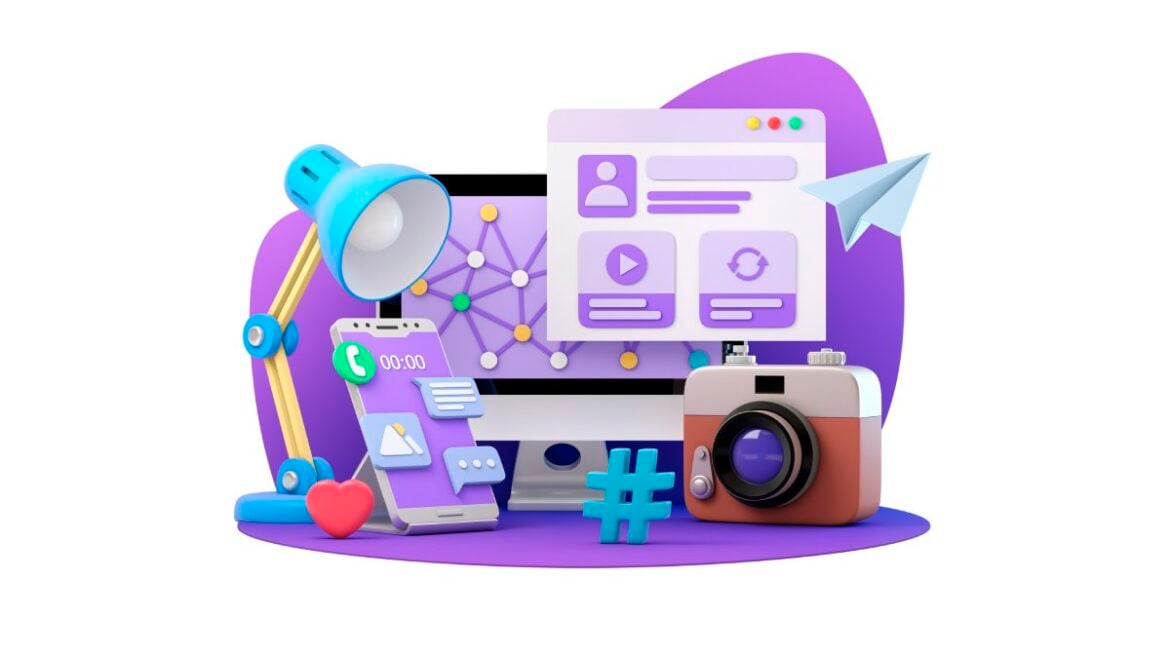In today’s digital-first world, businesses must make strategic choices about where to invest their marketing efforts. Two giants dominate the field: Google and social media platforms. But which is more powerful? The answer depends on your business goals, audience and strategy.
In this blog, we’ll explore the strengths of Google and social media as marketing platforms, break down their key differences, and help you determine the right fit for your brand. Whether you’re looking to partner with a digital marketing agency or crafting strategies in-house, this guide is your roadmap.
The Power of Google as a Marketing Platform
Google has long been synonymous with search, and its dominance remains unchallenged. But what makes it such a powerhouse for businesses?
1. Unmatched Reach
With over 16.4 billion searches processed daily, Google offers an unparalleled opportunity to connect with people actively seeking solutions.
2. Intent-Driven Marketing
Google users often have high intent—they’re searching for answers or products they need right now. Whether through organic search or paid ads, Google enables businesses to tap into these motivated audiences.
3. Tools That Deliver Results
Google Ads and Google Analytics provide precise targeting and measurable results. Google Ads allows your business to rank at the top of search results, while Analytics gives you detailed insights into user behaviour.
Social Media: The Art of Engagement
Social media platforms like Facebook, Instagram, LinkedIn and TikTok thrive on connection, making them ideal for building relationships and trust.
1. Building Brand Personality
Social media allows businesses to showcase their personality and create an emotional connection with their audience. Through posts, stories and videos, brands can tell their story and establish a unique identity.
2. Highly Targeted Advertising
Social platforms excel in audience segmentation. Businesses can target users based on age, location, interests, and even behaviours.
3. Visual Storytelling and Engagement
Platforms like Instagram and TikTok are perfect for visual content, which is increasingly favoured by audiences. Engaging formats like stories, reels and live videos boost interaction and foster loyalty.

Key Differences Between Google and Social Media
While both platforms are powerful, they cater to different marketing objectives:
- User intent: Google targets users actively searching for solutions, while social media engages audiences in a more passive, discovery-driven way.
- Content format: Google is ideal for text-heavy content like blogs and ads, whereas social media thrives on visuals and interactive posts.
- Engagement levels: Google focuses on clicks and conversions, while social media encourages likes, comments and shares.
- Targeting approach: Google relies on keywords and search intent, while social media excels at demographic and behavioural targeting.
How to Choose the Right Marketing Platform for Your Business
When deciding between Google and social media, consider your specific goals:
- If you want immediate results:
Google Ads are perfect for capturing high-intent traffic and driving quick leads. - If you want to build long-term relationships:
Social media is the go-to platform for nurturing an audience and building brand loyalty. - If you have a limited budget:
Organic social media posts are cost-effective, while Google Ads can be scaled as your business grows. - If you need local visibility:
Leverage Google My Business for location-specific searches and combine it with local SEO. - If you want to go viral:
Social media offers far better potential for creating viral campaigns through shareable, creative content.

Why Not Use Both?
The best strategies often combine the strengths of both platforms. For instance:
- Use Google to capture search traffic from high-intent users.
- Retarget those visitors with creative ads on Facebook or Instagram.
This integrated approach ensures your brand stays visible across the entire customer journey.
Conclusion: Find the Balance That Works for You
Choosing the right marketing platform is about aligning your strategy with your goals. Google excels at intent-driven marketing, while social media is unmatched in engagement and community building. Understanding their strengths can help you craft a winning marketing strategy.
Need expert guidance? Elite Digital, a leading Toronto digital marketing agency, specializes in creating tailored strategies for businesses of all sizes. Contact us today to unlock the full potential of your marketing platforms!
